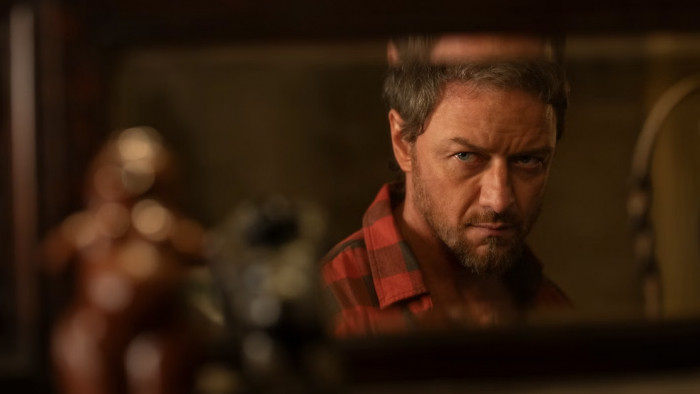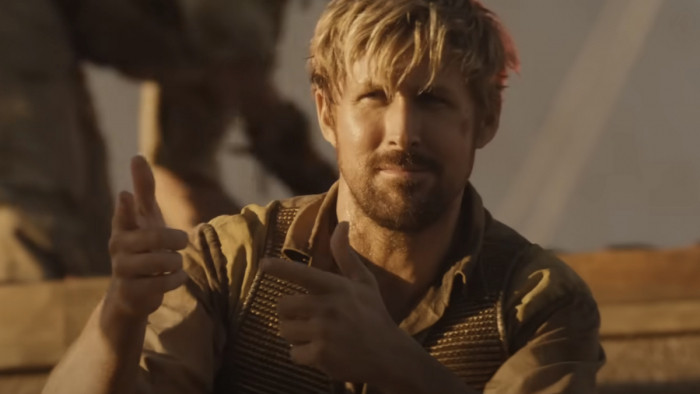A few years ago, the bittersweet Richard E Grant rom-com Jack & Sarah was marketed in UK cinemas with a unique ‘money-back’ guarantee: if you didn’t enjoy the film, you could get a refund on your ticket price. Apparently, few punters found this fairly innocuous flick unsatisfying enough to ask for their money back, and Jack & Sarah turned a respectable profit. It was a smart marketing ploy, but one that others have been less than keen to follow.
No wonder. Think what would happen if a refund had been promised for Transformers: Dark Of The Moon, Cars 2 3D, Pirates Of The Caribbean: On Stranger Tides, or any of the other miserably disappointing blockbusters that have been clogging up our multiplex screens this summer. Would any of those wretched movies have been quite so profitable if viewers had been given the chance to decide whether or not they were actually worth paying for after watching the movie? I think not.
In an age in which a trip to the cinema has become an ever-more expensive treat, bad films are an unaffordable financial burden. When you’re shelling out more for a movie than the price of a restaurant meal, you want some form of guarantee that your hard-earned money is going to get you at least a base level of entertainment.
And even when a movie turns out to be really terrible, very few audience members are willing to walk out because, at these prices, leaving before the end credits feels as if you are short-changing yourself — like that old Woody Allen joke about the food in a restaurant being really bad, and, even worse, the portions being so small. Instead, the ticket-buying public have learned to suffer in silence, stoically enduring crap such as Sex And The City 2 with few believing that they have the right to demand a refund on the grounds of insufficient laughter.
A DIRECTOR APART
Just because a movie makes loads of money, that doesn’t mean that anyone actually liked it — it just means that loads of people paid to see it in the hope that it didn’t turn out to be terrible. Michael Bay’s abysmal Pearl Harbor played to packed cinemas around the world and I’ve honestly never met anyone who enjoyed that atrocity. It might have made millions of dollars, but it also left millions of viewers bored out of their skulls. And those are people who are never going to get back either the price of the ticket or the hours of their lives that they wasted on the film.
Things are different if you’re a film critic who gets to watch movies for free. In the 25 years since I first started filing reviews for the Manchester listings magazine City Life, I’ve seen thousands of unspeakably awful movies — Norbit, Sex Lives Of The Potato Men, Revolver to name but a few — and hardly any have left me out of pocket.
More importantly, I have found the experience of watching bad movies to be not only positive but also essential — an important part of the job. Back in the Eighties, when I first worked for the British Film Institute’s Monthly Film Bulletin, the editor insisted that all fledging writers wade their way through a virtual sea of celluloid crap before letting them loose on ‘proper’ movies, on the basis that only people who had seen plenty of rotten films would know what
a really good one looked like. One part of this training process was being sent to review cut-down softcore sex films which (thanks to the attentions of the censors) had bits missing and therefore didn’t make any sense, and then being asked to write a coherent plot synopsis that would often impose a sense of order sadly lacking from the film itself. As former MFB writer Kim Newman wryly observed, “If you could make sense of those movies, you could make sense of anything.”
There is also the fact that many movies which one might expect to be rubbish actually turn out to be surprisingly good. The 1989 straight-to-video weirdie Cannibal (Piranha) Women In The Avocado Jungle Of Death, for example, may sound like just another one of those unwatchable wannabe cult-movie rip-offs like Surf Nazis Must Die, Over-Sexed Rugsuckers From Mars and, more recently, Mega Shark Versus Giant Octopus [pictured left], but in fact it is a satirical gem boasting an early starring role by Bill Maher — now a respected TV host — and pseudonymously directed by the man who went on to make his millions writing the original screenplay for Pretty Woman. This is a fairly common career path, with big establishment Hollywood names learning their craft on apparently trashy movies that are often more interesting than their blockbusting counterparts.
LEARNING THEIR TRADE
Cinematographer Wally Pfister, who recently won an Oscar for his work on Chrisopher Nolan’s Inception, cut his teeth on a string of straight-to-video erotic thrillers, few of which garnered any positive critical attention. Yet those who had spent time in the trash-movie trenches recognised that no matter how ‘bad’ some of those movies seemed, they all looked good, thanks to the work of one of cinema’s most inventive lensmen. Similarly, directors as diverse as Francis Ford Coppola, Jonathan Demme and Martin Scorsese served their time in the ‘trash’ marketplace before going on to win Academy Awards and high-brow applause with The Godfather, The Silence Of The Lambs and The Departed.
The genius of Inception is the fact that it made millions by treating its audience as intelligent at a time when Hollywood executives were insisting that the only way to make money was to dumb down. Contrary to industry opinion, Inception proved that mainstream audiences
are not just able to but also eager to keep up with intriguing storytelling, and are crying out for films that are unafraid to be adventurous. Whether or not the joy of watching Nolan’s finest work justifies the pain of paying to see a Michael Bay flick remains a matter of debate. But the good news is that most multiplex viewers have watched enough bad movies to know a good one when they see it.
The Good, The Bad And The Multiplex by Mark Kermode is out now, priced £11.99 (Random House). He is also curating BMW’s Film Origin Series, see p48 for more details
Images: Rex/Allstar
Latest
Related Reviews and Shortlists










